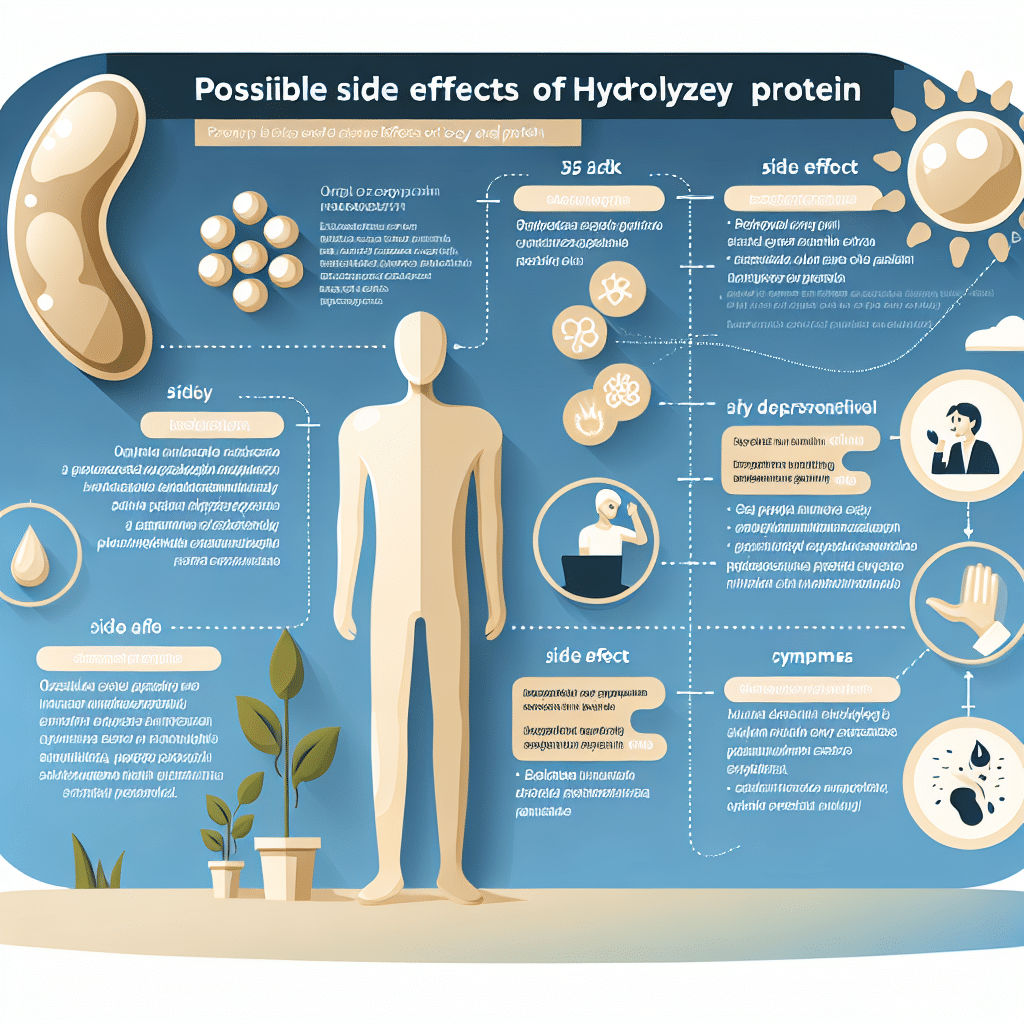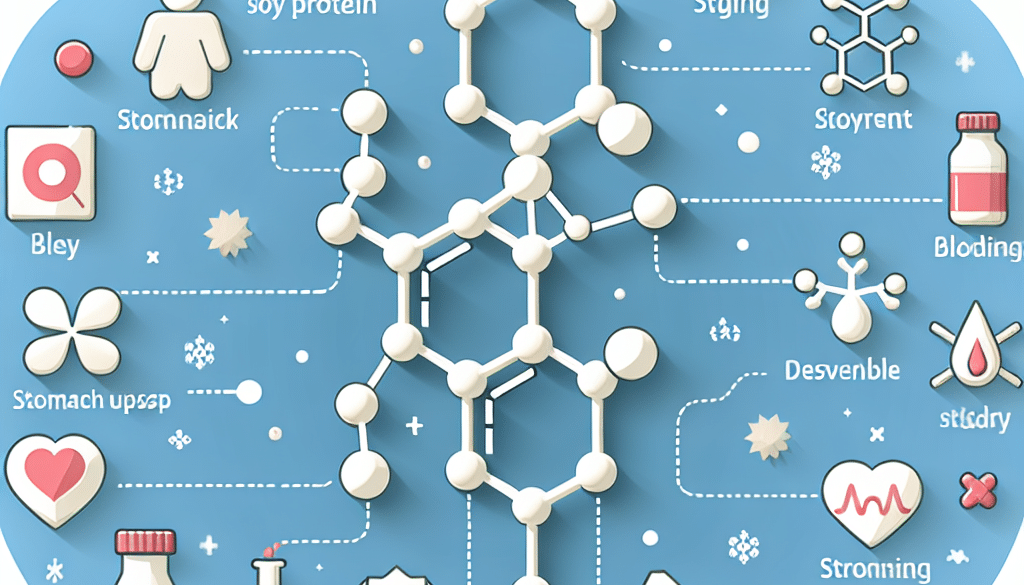What Are The Side Effects Of Hydrolyzed Soy Protein?
-
Table of Contents
- Hydrolyzed Soy Protein Side Effects: What You Need to Know
- Understanding Hydrolyzed Soy Protein
- Potential Allergic Reactions
- Gastrointestinal Issues
- Hormonal Disruption
- Monosodium Glutamate (MSG) Formation
- Nutrient Absorption Interference
- Environmental and Genetic Modification Concerns
- Conclusion: Weighing the Benefits and Risks
- Discover ETprotein’s High-Quality Protein Products
Hydrolyzed Soy Protein Side Effects: What You Need to Know

Hydrolyzed soy protein is a common ingredient found in a variety of food products, from sauces and soups to meat alternatives and protein bars. It’s derived from soybeans and is often used to enhance flavor or boost protein content. While it offers certain benefits, such as being a complete source of plant-based protein, there are potential side effects associated with its consumption that consumers should be aware of. This article delves into the side effects of hydrolyzed soy protein, supported by research, examples, and statistics.
Understanding Hydrolyzed Soy Protein
Before we explore the side effects, it’s important to understand what hydrolyzed soy protein is. It’s created by breaking down soy protein into smaller peptide chains through a process called hydrolysis. This process makes the protein easier to digest and can enhance the flavor of food products. Despite its benefits, there are several side effects that may arise from its consumption.
Potential Allergic Reactions
One of the most significant concerns with hydrolyzed soy protein is the risk of allergic reactions. Soy is one of the eight major allergens recognized by the FDA, and it can cause symptoms ranging from mild to severe, including:
- Hives or skin rash
- Nausea and vomiting
- Diarrhea
- Wheezing or difficulty breathing
- Anaphylaxis in severe cases
Those with a soy allergy should avoid products containing hydrolyzed soy protein to prevent these reactions.
Gastrointestinal Issues
Some individuals may experience gastrointestinal discomfort after consuming hydrolyzed soy protein. Symptoms can include:
- Bloating
- Gas
- Stomach cramps
- Diarrhea
These symptoms are often due to the body’s response to the peptides formed during hydrolysis, which can irritate the digestive tract in sensitive individuals.
Hormonal Disruption
Soy contains isoflavones, which are phytoestrogens that can mimic the hormone estrogen in the body. While the research is mixed, some studies suggest that high consumption of soy products could potentially lead to hormonal imbalances, particularly in sensitive populations such as:
- Women with estrogen-sensitive breast cancer
- Men with concerns about testosterone levels
- Children with developing endocrine systems
However, it’s important to note that the levels of isoflavones in hydrolyzed soy protein are typically lower than in whole soy foods.
Monosodium Glutamate (MSG) Formation
During the hydrolysis process, free glutamic acid can be released, which may combine with sodium in the body to form monosodium glutamate (MSG). While the FDA considers MSG to be generally safe, some individuals may be sensitive to it, experiencing symptoms such as:
- Headaches
- Flushing
- Sweating
- Nausea
- Chest pain
These symptoms are often referred to as “MSG symptom complex” or “Chinese restaurant syndrome.”
Nutrient Absorption Interference
Phytic acid is another compound found in soy that can interfere with the absorption of essential minerals such as calcium, magnesium, iron, and zinc. While hydrolysis can reduce phytic acid levels, it may not eliminate them entirely, potentially leading to deficiencies in these minerals over time, especially in those who rely heavily on soy products for their protein intake.
Environmental and Genetic Modification Concerns
Most of the world’s soy is genetically modified (GM) to resist herbicides and pests. There are concerns about the long-term health effects of consuming GM foods, as well as the environmental impact of GM crops, such as increased herbicide use and biodiversity loss. Consumers who are cautious about GM foods may want to avoid hydrolyzed soy protein or seek out non-GM or organic alternatives.
Conclusion: Weighing the Benefits and Risks
Hydrolyzed soy protein offers a high-quality plant-based protein source that can be beneficial for many people. However, it’s important to be aware of the potential side effects, including allergic reactions, gastrointestinal issues, hormonal disruption, MSG formation, nutrient absorption interference, and concerns related to genetic modification. Consumers should weigh these risks against the benefits and consider their individual health needs and dietary preferences when deciding whether to include hydrolyzed soy protein in their diet.
Discover ETprotein’s High-Quality Protein Products
If you’re looking for alternative protein sources that address some of the concerns associated with hydrolyzed soy protein, ETprotein offers a range of organic bulk vegan proteins that are non-GMO and allergen-free. Their products, including organic rice protein, pea protein, and various seed proteins, provide high purity and neutral taste, making them suitable for a wide range of applications in the nutraceutical, pharmaceutical, and food and beverage industries.
For those interested in exploring protein options that are environmentally friendly and cater to specific dietary needs, ETprotein’s offerings present an excellent choice. To learn more about their products or to request a sample, contact ETprotein and email sales(at)ETprotein.com today.
About ETprotein:
ETprotein, a reputable protein and L-(+)-Ergothioneine (EGT) Chinese factory manufacturer and supplier, is renowned for producing, stocking, exporting, and delivering the highest quality organic bulk vegan proteins and L-(+)-Ergothioneine. They include Organic rice protein, clear rice protein, pea protein, clear pea protein, watermelon seed protein, pumpkin seed protein, sunflower seed protein, mung bean protein, peanut protein, and L-(+)-Ergothioneine EGT Pharmaceutical grade, L-(+)-Ergothioneine EGT food grade, L-(+)-Ergothioneine EGT cosmetic grade, L-(+)-Ergothioneine EGT reference grade and L-(+)-Ergothioneine EGT standard. Their offerings, characterized by a neutral taste, non-GMO, allergen-free attributes, with L-(+)-Ergothioneine purity over 98%, 99%, cater to a diverse range of industries. They serve nutraceutical, pharmaceutical, cosmeceutical, veterinary, as well as food and beverage finished product distributors, traders, and manufacturers across Europe, USA, Canada, Australia, Thailand, Japan, Korea, Brazil, and Chile, among others.
ETprotein specialization includes exporting and delivering tailor-made protein powder and finished nutritional supplements. Their extensive product range covers sectors like Food and Beverage, Sports Nutrition, Weight Management, Dietary Supplements, Health and Wellness Products, and Infant Formula, ensuring comprehensive solutions to meet all your protein needs.
As a trusted company by leading global food and beverage brands and Fortune 500 companies, ETprotein reinforces China’s reputation in the global arena. For more information or to sample their products, please contact them and email sales(at)ETprotein.com today.














